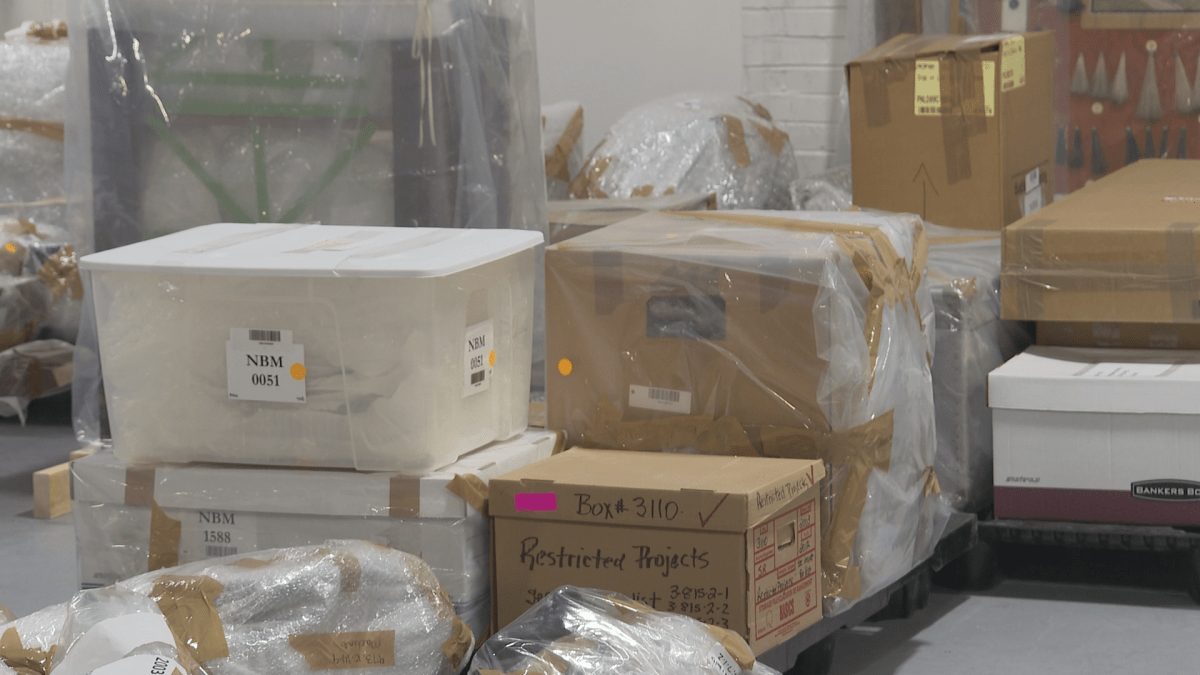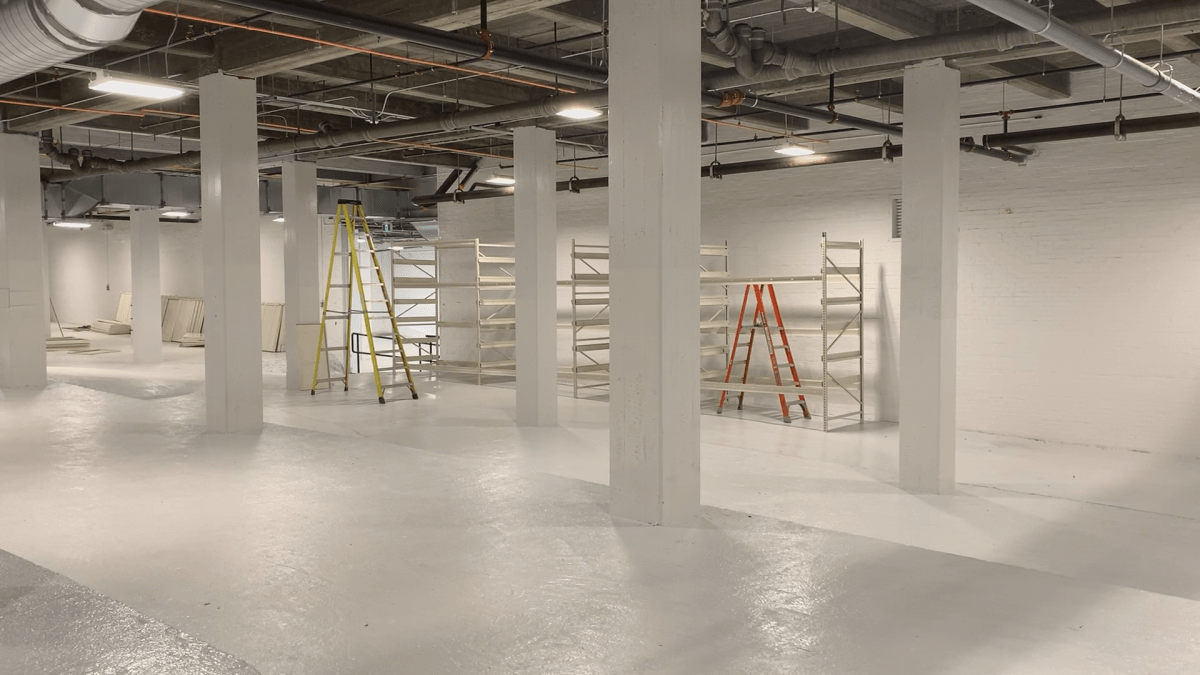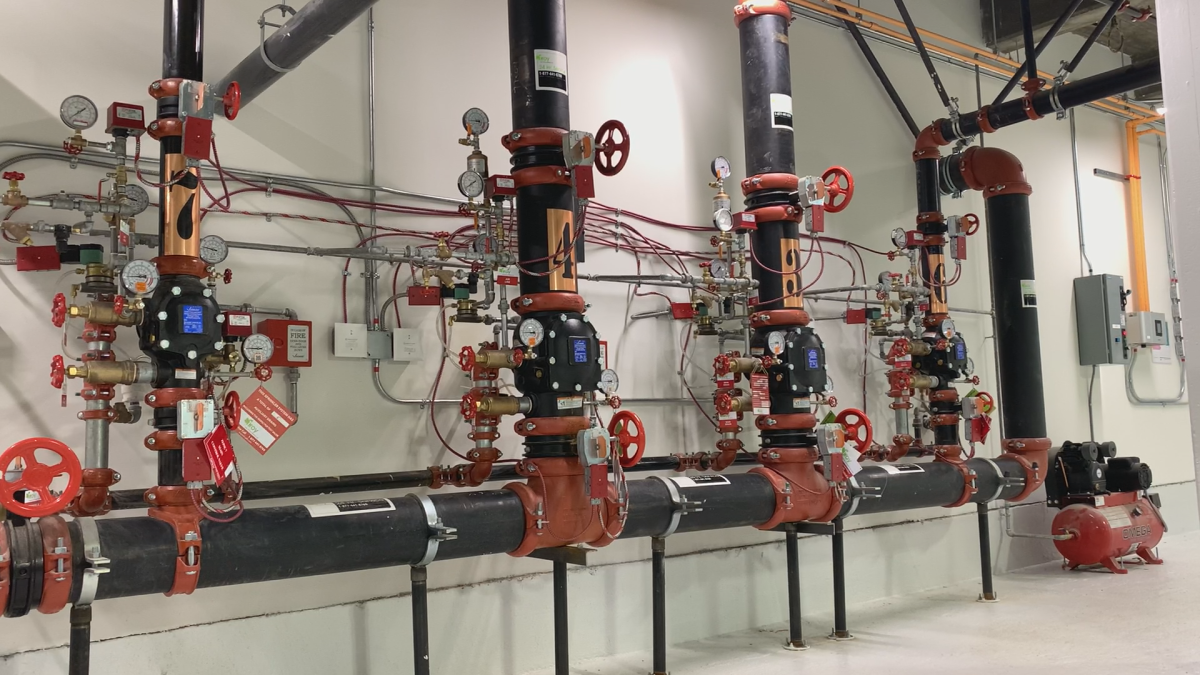The New Brunswick Museum has a new state-of-the-art storage and laboratory facility in Saint John.

In the past several years, the space for the museum has faced significant challenges.
A new location was kiboshed by the Higgs government in 2018, and it moved into Market Square. It would be plagued by issues with the roof, including a leak in 2020 which forced a closure.
It has not reopened, but the new facility is to help the museum renovate the location on Douglas Avenue — the original location of the provincial museum.
The provincial government moved in and renovated 228 Lancaster Ave., which was a former auto parts manufacturer, including the world-famous Bricklin.
“As you notice, the concrete structure, the solidity of the building, built for the ages,” said William Forrestall, interim chair of the board for the New Brunswick Museum.
“I think we’ve got kind of a beautiful synthesis to it, that we’re taking this building and we’re repurposing it, upgrading it to a first-class facility to hold the heritage treasures of New Brunswick.”
Staff are in the process of moving items from four different locations, including Douglas Avenue, which will need to be vacant for renovations.
The building is a bit more than 65,000 square feet and has two floors. There are laboratory spaces, including a conservation lab. It will allow all the work the museum does to happen in one place.

Get breaking National news
There is a special room with reinforced walls and a special lock for weapons the museum has curated and owns.
All 50 employees will work from the location.
“For the first time in 40 years, the collection can actually be brought together, and can be brought together with personnel,” he said. “We’re not running around all over the place, we’re not worried about leaks, and some of the buildings were just not appropriate for preserving our heritage.”
One of the key features of the new space is the temperature control.
“Any museum wants to keep it’s collection at a constant temperature and humidity,” said Peter Larocque, the museum’s head of humanities. “And that varies for collections. Some things are almost indestructible … but things like textiles really are affected by changes in humidity and temperature.”
The other feature is a unique fire suppression system with intricate alarm systems to indicate when there is an emergency.
It is set by zone and has two levels of alarm.
“In the collections area, we have a dry pipe system with sprinklers on them that are attached to a central control area and there are special monitors that keep testing the air on an ongoing bases to let us know whether there is a problem,” Larocque said.
Many pieces will continue to be moved by staff over the next few weeks, and is described as Herculean effort. The next space to be cleared is the Douglas Avenue location.
Donald McAlpine, the head of zoology section, said space has been the biggest part of the new facility.
“It’s been very very crowded at Douglas Avenue, so it’s really exciting to actually have space to get the collection organized the way it needs to be and to be able to work with the material, to have access to it,” he said. “It’s pretty simple but it is space.”








Comments